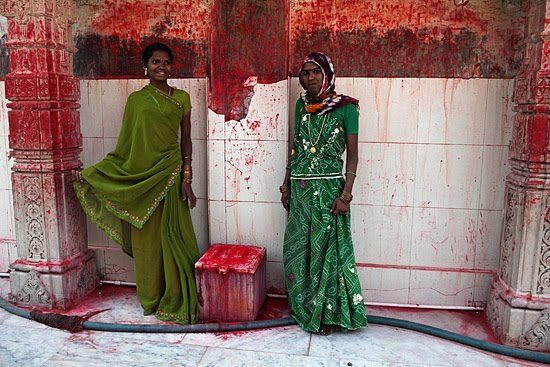The Hijras (Eunuchs) of Becharaji

Eunuchs, transsexuals, or transgender men are known as hijras in South Asia. They adopt feminine gender identity, women's clothing and other feminine gender roles. Etymologically, the word hijra is an Urdu word, seemingly derived from the Arabic root hijr or emigration in the sense of "leaving one's family, tribe or country," and it has been borrowed into Hindi.

Many hijra live in all-male communities, and have sustained themselves over generations by "adopting" young boys who are rejected by, or flee their family. Many work as male sex workers for survival. According to estimates by health organizations, only 10% of hijras are actually castrated.

During my Tribes of South Rajasthan & Kutch Photo~Expedition™ , we stayed at the immaculate and well-run Rann Riders resort in Dasada, and its knowledgeable owner Muzahid Malik, suggested we visited Becharaji where hijras frequented its temple.

As I walked in to the temple ahead of my group, I chanced upon hijras who, upon seeing me, started to clap their hands and laughing. Not really catching on that this was their trademark way of announcing their presence and sexual persuasion, I imitated them and clapped in exactly the same way...one hand on the top of the other, rather than sideways. This drove them to raucous laughter, and eventually to self-consciously pose for our cameras.
There are many stories told about the hijras, and how they extort money by embarrassing shopkeepers and guests at wedding parties, but those we met at the Becharaji temple were friendly and obviously delighted that we took such nonjudgmental interest in them. Naturally, there was some posturing for the cameras, and much competition for the most suggestive poses.
Muzahid invited me to spend a couple of weeks in Dasada. Perhaps I will...After all, there's a hijra festival at Becharaji in late summer. Another potential destination for a photo~expedition?
For a book on hijras, read Zia Jaffrey's The Invisibles.